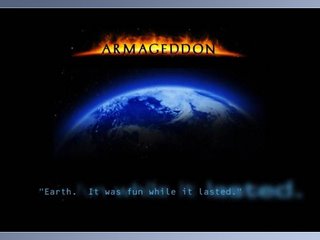genocide of the SOUL!
Fantasy or Imagination: Boundaries of capitalism and spirituality?
How much is your soul? Is spirituality now on sale, buy one get two for free?
Are we that fooled by the dominant ideologies that we can take some courses in some New age doctrine, and become enlightened spiritual beings?
Why are there some many self-help books? What is wrong with the modern new age fantasy? Is it another escapism that goes hand in hand with UFOs, conspiracy theories, remnants of cold war, hippies…and other dystopian utopias?
My stomach cannot handle the amount of recipes given by neo-shamans, neo-prophets, and healers that aim to bring spirituality into the heart and mind of ‘innocent’ civilians, or individuals. This new age movement is not an attempt to secularize culture, but to commodify spirituality. Sacred knowledge is now for sale. “Noble savage’ is incarnated in the image of a medicine man or a woman. First nations are now idealized, mythologizes, and sacralized. After the long and bloody history of colonized genocide, we are now colonizing their most intimate terrains, their spirituality. We’ve taken everything from them: their land, their lives, their voices, their cultures, languages…Now we are taking their soul away!!!
Another book is been published, another sacred warrior has been invented, another medicine woman brought peace of mind to some white rich woman…another way to destroy, another turn of the wheel of time..of biopolitics that attained enormous devastating capacity. Holocaust continues in its different manifestation to different nations, to those who are on the margins, on the edge…of the dominant culture. Smallpox, then land claims, reservations, forced education, deconstruction of values, alcohol,. now it is new age spirituality. We are doing everything possible to make them a fantasy, a product of our imagination. I guess it will be easier for the white dominant culture to be with Indians being extinct, and present only in this form of myths, as noble and spiritual savages, the one who gave us new meaning of spirituality…
Plastic shamans, new age spirituality are stomach upsetting events that are happening in the dominant culture. Is it because Christianity does not satisfy spiritual hunger, or hunger for some higher mystical experiences? Is Christianity lacking something? And here I am getting myself in a sticky realm…but I think that Christian dogma was busy justifying biopolitics during Inquisition, Holocaust, colonial conquest, and Hiroshima. Christianity is full of mysticism, and sacred terrains, but we lost them in the pursuits of power and control…yes, it is more complex than this. But it is also true.
By making plastic shamans, we are committing the worst possible genocide ..the genocide of the soul.
“I am sorry you soul just died…with a new bestseller of “Sacred Warrior…X”.
Fantasy or Imagination: Boundaries of capitalism and spirituality?
How much is your soul? Is spirituality now on sale, buy one get two for free?
Are we that fooled by the dominant ideologies that we can take some courses in some New age doctrine, and become enlightened spiritual beings?
Why are there some many self-help books? What is wrong with the modern new age fantasy? Is it another escapism that goes hand in hand with UFOs, conspiracy theories, remnants of cold war, hippies…and other dystopian utopias?
My stomach cannot handle the amount of recipes given by neo-shamans, neo-prophets, and healers that aim to bring spirituality into the heart and mind of ‘innocent’ civilians, or individuals. This new age movement is not an attempt to secularize culture, but to commodify spirituality. Sacred knowledge is now for sale. “Noble savage’ is incarnated in the image of a medicine man or a woman. First nations are now idealized, mythologizes, and sacralized. After the long and bloody history of colonized genocide, we are now colonizing their most intimate terrains, their spirituality. We’ve taken everything from them: their land, their lives, their voices, their cultures, languages…Now we are taking their soul away!!!
Another book is been published, another sacred warrior has been invented, another medicine woman brought peace of mind to some white rich woman…another way to destroy, another turn of the wheel of time..of biopolitics that attained enormous devastating capacity. Holocaust continues in its different manifestation to different nations, to those who are on the margins, on the edge…of the dominant culture. Smallpox, then land claims, reservations, forced education, deconstruction of values, alcohol,. now it is new age spirituality. We are doing everything possible to make them a fantasy, a product of our imagination. I guess it will be easier for the white dominant culture to be with Indians being extinct, and present only in this form of myths, as noble and spiritual savages, the one who gave us new meaning of spirituality…
Plastic shamans, new age spirituality are stomach upsetting events that are happening in the dominant culture. Is it because Christianity does not satisfy spiritual hunger, or hunger for some higher mystical experiences? Is Christianity lacking something? And here I am getting myself in a sticky realm…but I think that Christian dogma was busy justifying biopolitics during Inquisition, Holocaust, colonial conquest, and Hiroshima. Christianity is full of mysticism, and sacred terrains, but we lost them in the pursuits of power and control…yes, it is more complex than this. But it is also true.
By making plastic shamans, we are committing the worst possible genocide ..the genocide of the soul.
“I am sorry you soul just died…with a new bestseller of “Sacred Warrior…X”.











